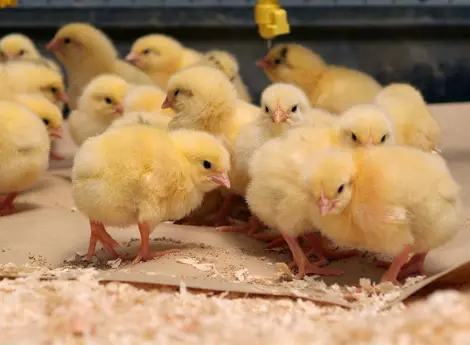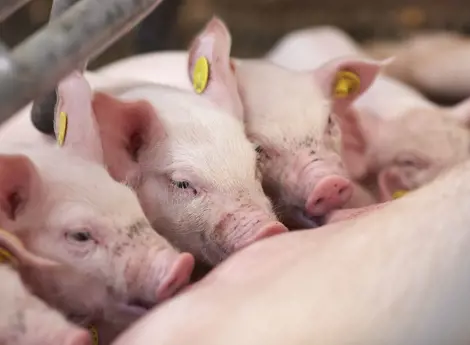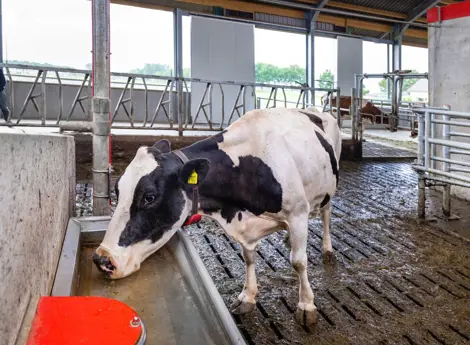How a balanced rumen enhances your animals’ health
For a farm to function well, it must be healthy. The same goes for the cows on a farm. Healthy cows are more efficient, resulting in optimal milk production. What’s more, animals that look healthy and produce milk easily enhance the dairy farmer’s work satisfaction. One of the factors contributing to a cow’s good health is a well-balanced rumen. So, what do you need to do, to ensure your cows have well-balanced, healthy rumens?
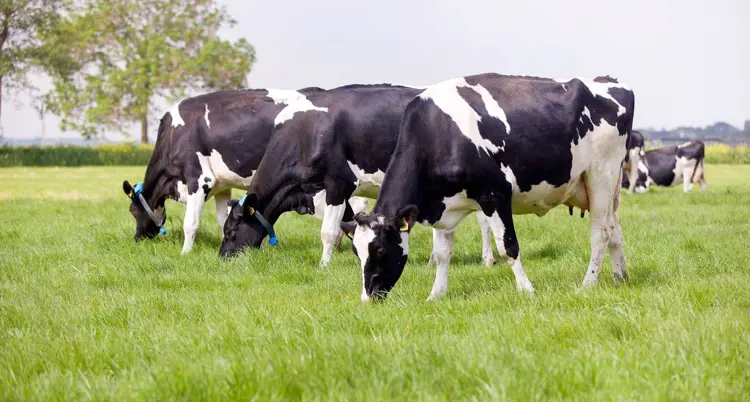
How to spot rumen problems
Rumen problems can be caused by several factors. A rumen problem that the specialists at De Heus regularly encounter is rumen acidosis. This is a metabolic disorder caused by highly digestible ('rapidly digestible') nutrient sources, especially carbohydrates. In practice, the first and second grass silages, high starch containing maize silages and high concentrate inclusion total mixed rations is often more digestible than anticipated and could lead to metabolic disorders such as acidosis.
You can spot the onset of rumen acidosis by using your sense of touch, sight, and smell. Beware of silage where the grass seems to have little structure, a low dry-matter content, and a strong sour smell. If you notice any of these signs, you may need to adjust your ration. If you fail to spot these signs, look out for several other typical symptoms among your dairy cows. For example, there may be changes in the manure. The cow's rear will often appear to be 'dirty' and she may start to foam at the mouth. In a more advanced stage, the cow may lie down with its head facing the rumen.
Another potential change is a drop in milk production for an extended period for no apparent reason. On modern farms, the milking machines and management software will often record less activity. All these signs could point to a rumen that is not healthy.
Milk production may decline, and the milk may contain fewer solids. The fat concentration may be lower. If the rumen is unstable for a prolonged period, it may have a negative effect on fertility and it can result in hoof problems as well.
What you can do
If you notice these symptoms, contact a De Heus specialist for help. Together we can look for ways to reduce the rate of fermentation. De Heus implement several concepts to ensure healthy rumens and healthy cows for optimal production and longevity. The concepts include the SynchroFos (SFOS) system for optimal rumen synchronization of nutrients. The Prelacto Dry Cow plan for healthy transition cow management. The Kaliber Calf rearing program for optimal growth and rumen development of young stock. Labo Expert lab analysis to link up with nutritional aspects required in the SFOS system and then finally Feed Expert, a formulation program based on the SFOS system to help ensure optimal rumen synchronization and cow health,
We begin by checking if it is possible to use different roughages on your farm. If so, then we would recommend combining the rapidly digestible silage or feed source with the another, less digestible, roughage source. The key is to look for slower fermenting raw materials with sufficient structure.
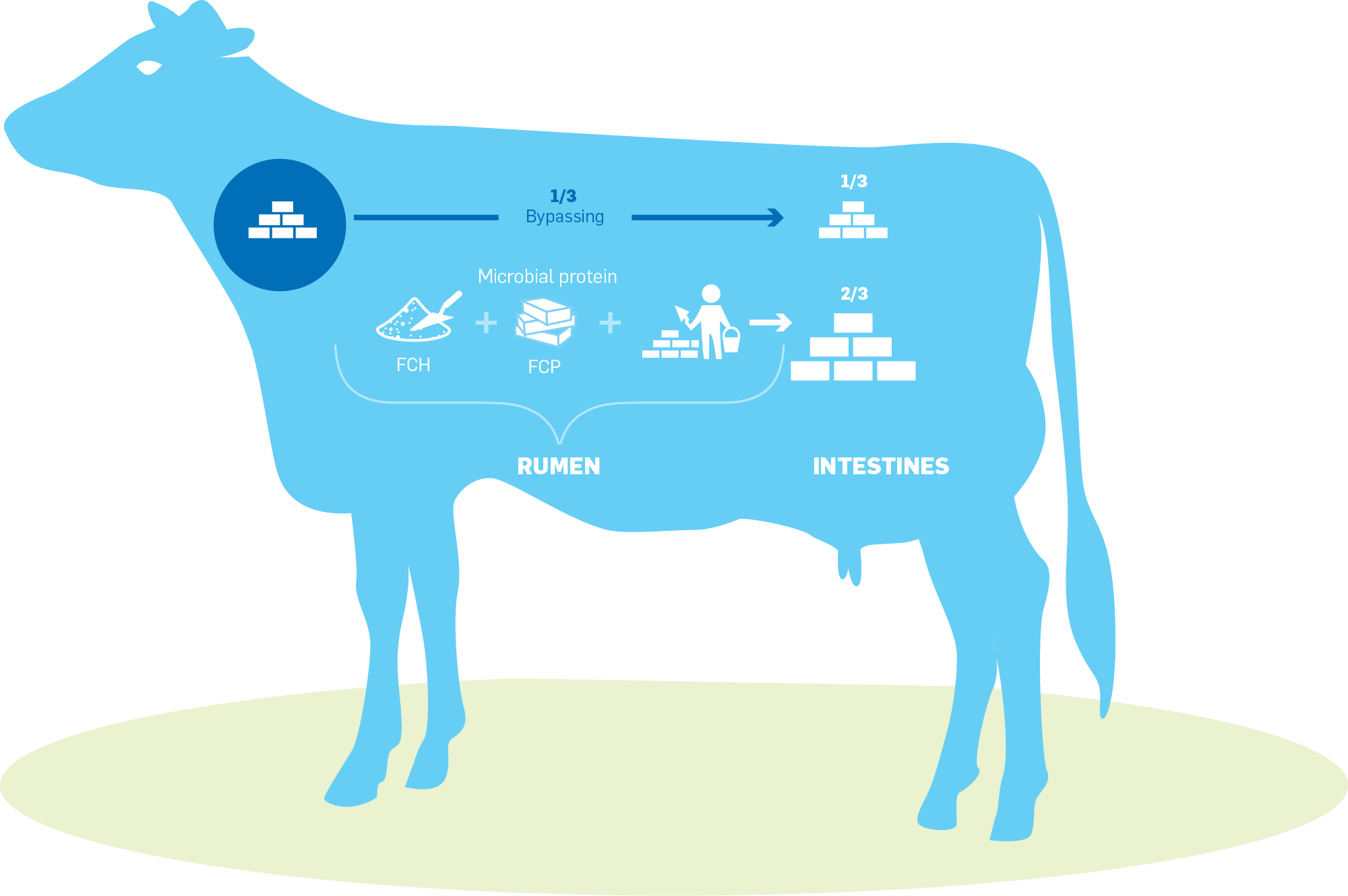
If it is not an option to correct the problem with different roughage sources, then you should consider using different supplements. There are several possibilities. These include different concentrate sources, as well as additives such as buffers and yeasts, each having a specific goal and role to play. However, the best solution remains a balanced rumen by means of rumen Synchronization.
De Heus has a wide range of products for dairy cows to suit all possible requirements. This includes slower or faster fermentable feed depending on the requirement. The cows will look better, become more active, have better manure and production will be improved.
How grazing affects the rumen
If you decide to transition to fresh grazing, it is important that the cows have optimal rumen health before you start so they can properly digest the fresh grass, which may also be rapidly fermentable. It’s also important to keep in mind that the composition of fresh grass can vary significantly for various reasons, such as weather conditions, for example. If the rumen is not healthy, the cow may struggle to adapt to these changes.
What else affects the rumen?
Any situation involving changes for the cow can potentially upset the rumen balance. Stressful situations, such as the period around calving can cause rumen acidosis. Cows that have recently calved may have a lower feed intake than desired, which may cause rumen problems. These cows often consume less roughage (and therefore less structure-rich food) because they may not have fully recovered from the calving process. Often cows also have not followed a rigid transition program negatively affecting rumen adaption to feed sources used during lactation. This will negatively affect the rumen environment and increase the risk of rumen acidosis and several other metabolic disorders.
You can help these cows by following a transition program such as the Prelacto Dry cow plan from De Heus. This will help stimulate feed intake and ensure they consume enough of a well-balanced ration. Looking after cows during the transition period followed by a well-balanced ration which makes use of the SFOS system for rumen synchronization is key in minimizing the risk of metabolic disorders such as acidosis and to ensure healthy cows throughout lactation and their life in general.
A hands-on, targeted approach
The De Heus Natural Power approach is designed to help you maintain the optimal rumen balance for your animals and consistently improve animal health on your farm. Our hands-on Natural Power Programme connects concepts such as the Prelacto Dry Cow Plan, the De Heus SynchroFos (SFOS) system, Labo Expert feed analysis, Feed Expert formulations, and the Kaliber Calf rearing plan. All these concepts and more provide you with the tools needed to improve animal health and performance on your farm, supporting the prudent use of antibiotics.
Click here to learn more about the Natural Power programme or contact a member of the De Heus team for more information.

